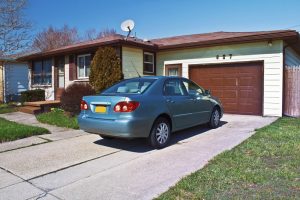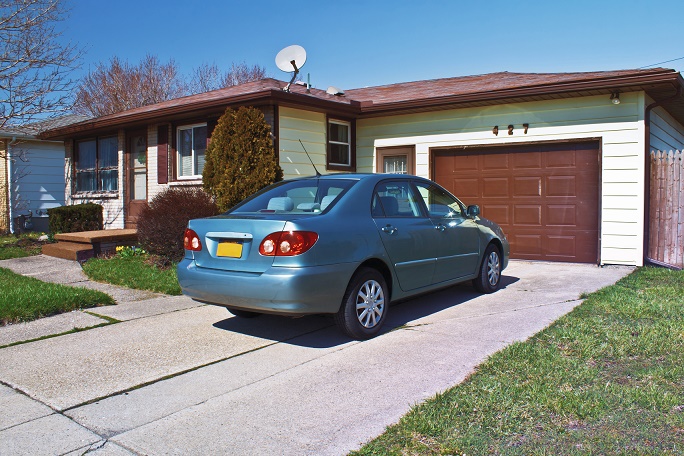by Gordon Jeremiah Berry
Parking signs are everywhere: one-hour, two-hour parking, loading zones, plus enforcement by parking agents or an electronic meter. In general, parking laws can be defined as, stopping, standing, or parking in specified places.
On the roadway side of any vehicle stopped or parked at the edge or curb of a street, on a sidewalk, within an intersection, on a crosswalk. It can also be between a safety zone and the adjacent curb or within 30 feet of points on the curb immediately opposite the ends of a safety zone, unless the Department of Transportation indicates a different length by signs or markings. Along or opposite any street excavation or obstruction when stopping, standing, or parking would obstruct traffic, or a bicycle path, is in front of a public or private driveway, within 15 feet of a fire hydrant, within 20 feet of a crosswalk at an intersection, within 30 feet upon the approach to any flashing signal, stop sign, or traffic control signal located at the side of a roadway.
Depending on your area, it may be tactically “illegal” to park your own car in your own driveway or your home if it winds up extending into the part of the driveway that’s also considered the sidewalk. In neighborhoods such as this, all property should be required to have “some green space” adjoining the sidewalk. Driveways should lead to a garage, or if there is no garage, then only a one car driveway should be allowed. Some areas have parts of the city where the sidewalks are substantially wider the necessary, that area should be converted to “green space”. Parking lot laws, rules, and regulations are usually made by the city, and or apartment complexes, townhome/condominiums, and homeowners associations.
In the city of Seattle for example, the Seattle Department of Transportation regulates the use of curb space to address competing needs, to assist in moving people and goods more efficiently, to support the vitality of business districts, and to create livable neighborhoods. The American Planning Association (APA) notes that no land use has a “natural or ideal parking standard”, and that conditions affecting parking requirements change from community to community.
In Houston, Texas, parking laws only apply to the residential areas where a written petition is signed by at least 60 percent of the owners within the association or civic club. The application for inclusion under the ordinance must be approved by the city council in accordance with the procedures outlined in the ordinance.
Typically, many homeowners associations (HOA’s) have strict rules regarding the exterior appearance of your property, landscaping, parking and a variety of other issues. Yet, (HOA’s) cannot selectively enforce their rules and restrictions against certain homeowners. Where an (HOA) attempts to selectively enforce rules against some owners while ignoring similar violations by other owners, the (HOA’s) disparate enforcement can be challenged. An example being allowing guests over for a party, gathering or small event.
In most communities, designated parking spots should be clearly marked as guest or visitor parking (this could be some distance away from the home that you are visiting). If there is no such areas, you may sometimes be able to park in a neighbors parking spot if you have been granted permission by the individual resident or residents. If there is no assigned parking and there are no sign(s) at the entrance of the community that would otherwise indicate “tow away zone” or “no illegal parking permitted” then parking would come as a first come first serve basis.
What to Do If Your Car id Towed Off?
If in the event that your car is towed in (most areas), there are a few simple steps that may be helpful. First, check that you in fact didn’t violate any parking rules. Make sure that there is no signage at the entry to the parking lot or in nearby spots that would indicate that you could be illegally parked. If you are able check the lease of the person who is renting the apartment. This should state parking restrictions and visitor parking in the apartment complex. Then call the apartment managers to lodge a complaint and ask them why your car was towed.
Second, make sure that you get proof that the towing company followed procedures regarding the towing. This would require that they take a picture of the car in the illegal spot and notify the local police department to ensure the car is not classified as stolen. (The towing company will most likely charge you for the photos).
Third, call the local police department. (The non-emergency line) and also ask the local police department to make sure where the towing company is located and check if they actually reported your car as towed. The police cannot force the towing company to give back your car, they can only act as a buffer to keep the peace if discussions get heated and act as a witness. Work through the police to make the initial complaint. Then follow local procedures (according to your area) to take the matter further if discussions with the towing company and apartment managers cannot resolve the dispute.
Fourth, apartment managers must display proper signage at the entrances that would indicate information to vehicle owners about parking restrictions. Most people don’t realize and towing company often ignore that no towing fee may be charged for the first 4, 12 or 24 hours of storage (depending on location and the local regulation of your local government). Towing companies must also accept credit cards payments and not restrict payments to cash only.
In conclusion, no one ever says life is far or that all laws make sense. Professor Donald Shoup of California University wrote, “The High Cost of Free Parking” in this research he put it best by saying: Future residents will pay more for housing, and future businesses will pay more for commercial real estate. As a result, there will be less of each. But these groups have no say over parking policy today. Liking this political dynamic to ‘taxing foreigners living aboard. The other ill effects of off-street parking mandates such upward pressure on grocery prices and the rest of a city’s cost of living, are so hidden and dispersed, that virtually no one recognizes them as a consequence of parking requirements. The hidden costs to human health and safety, local economies, air quality, and housing affordability are stark. But change has not come. Reasoned arguments have not mattered, because the prevailing arrangement works in the one arena that actually matters to local elected officials: politics. Ample off-street parking quotas balance the political interests that count, current residents, incumbent businesses, and developers. Consequently, they’ve remained frozen in law for a long time.”
About the Author
Gordon Jeremiah Berry, is an avid reader and intense researcher. Mr. Berry looks for the deeper meaning behind all things. His favorite saying is “Love must always win out!”




Neighbors have a boat parked outside their yard,obstructing our entrance to our property. Also junk cars. They have a big yard and theirs no reason they can’t park their junk in it. Concerned